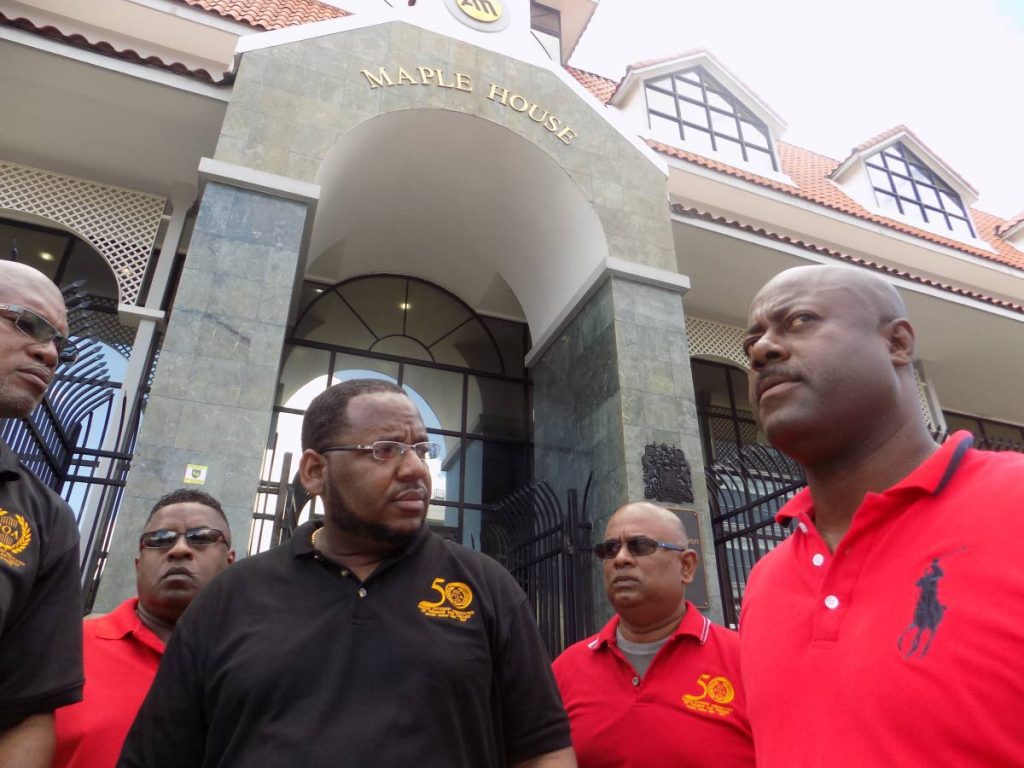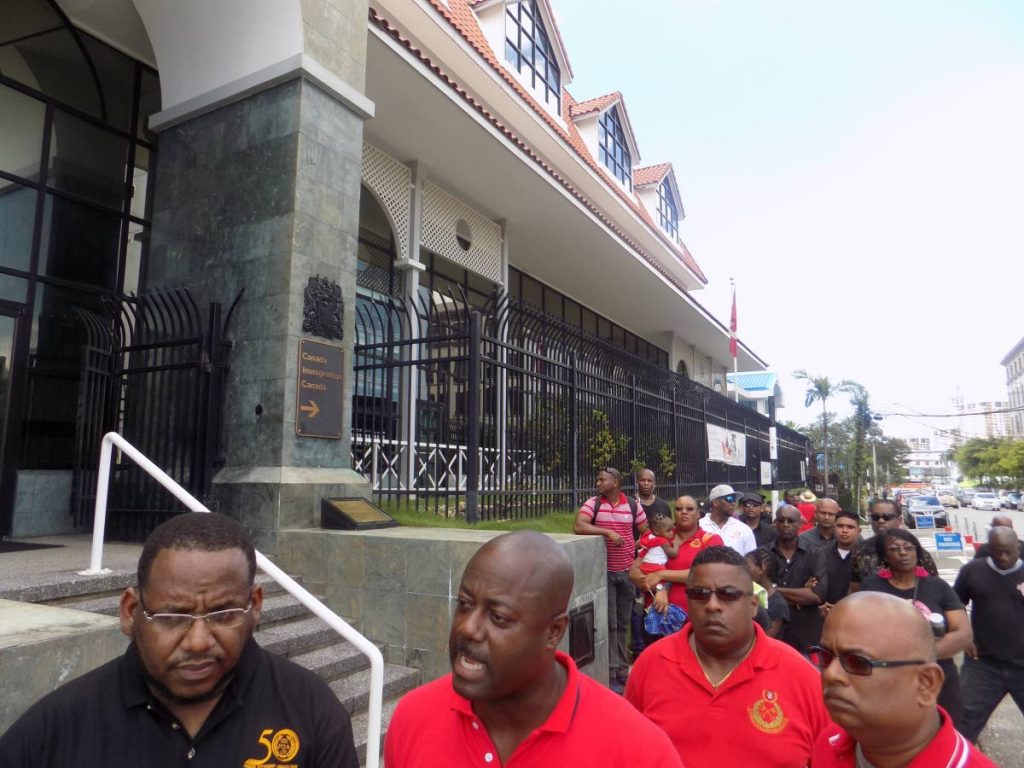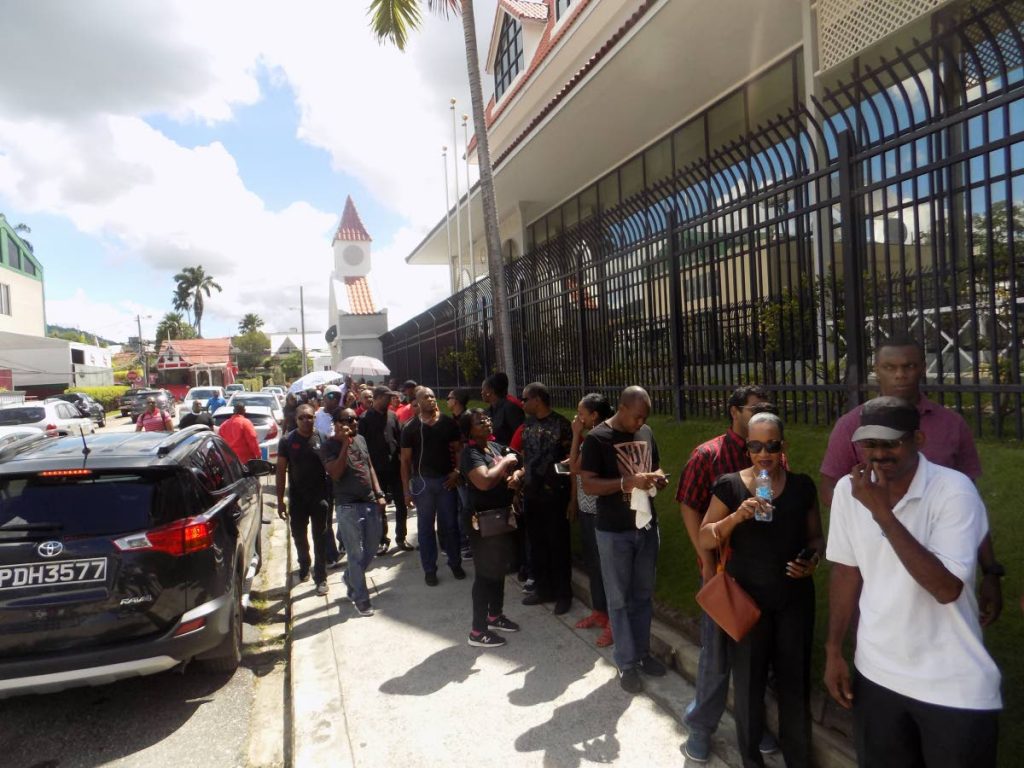Prison officers want refugee status

President of the Prison Officers Association (POA) Ceron Richards led more than 50 officers and their families to the Canadian High Commission on Sweet Briar Road in Port of Spain yesterday, to request asylum in Canada.
Richards said he is disappointed in government’s response to increasing attacks and even the murder of several officers hence he came to deliver a letter to Embassy officials on behalf of prison officers and their families who are requesting asylum.
“Prison officers and by extension their families no longer feel safe in TT and there is no indication that anything will change anytime soon. We are going through with what could be the only life-saving step for both our members and their families,” Richards said.

He added that the association exhausted all its options in trying to meet National Security Minister Edmund Dillon but despite repeated assurances from officials, they are no closer to a meeting to address security concerns.
“We have been trying to get this government to treat with safety and security of our officers. We are not of the belief that the government is taking our issues seriously. We have recommended introduction and implementation of laws to treat with the protection of not just prison officers but all law enforcement officials. All our cries have fallen on deaf ears,” Richards said.
Contacted for comment, acting Prison Commissioner William Alexander said he was unaware of any prison officer going to the Embassy and as such, preferred not to comment on that issue at this time. Alexander said he and other prison service executives remain committed to protecting the lives of officers within the ambit of the law. The commissioner said he will visit Parliament today to discuss security concerns before a Joint Select Committee.

Asked the condition of a prison officer who was attacked on Tuesday while on duty at Remand Yard, POA secretary general Gerard Gordon said that officer is being treated for his injuries and the authorities were arranging to provide security for him and his family. Gordon said he would not give any other details on the attack and the extend of the officer’s injuries.
Asked if asylum is granted and prison officers leave en masse, if this would affect the capabilities of the service, Richard bluntly said that is a question for Minister Dillon and the government. “We have done all that we can under the sun. This is not a matter that has only now come about...it is one that has spanned decades we are now at the mercy of the criminal element.”
Efforts by Newsday to contact Minister Dillon via his cellular phone and Canadian High Commissioner Carla Hogan Rufelds via the Embassy’s telephone numbers, proved unsuccessful. According to the Immigration and Refugee Board of Canada, asylum seekers may be categorised as either Convention refugees or simply in need of protection.

Comments
"Prison officers want refugee status"